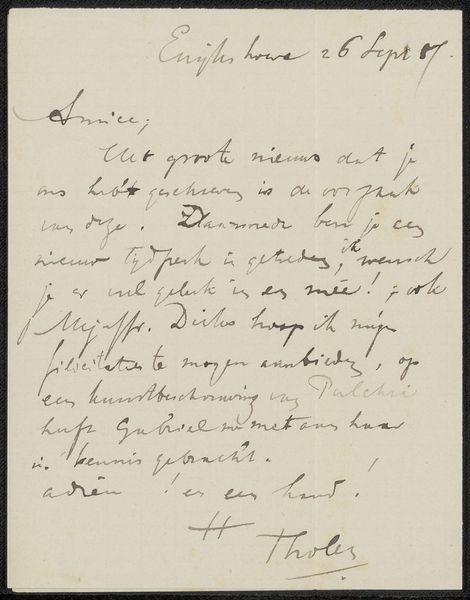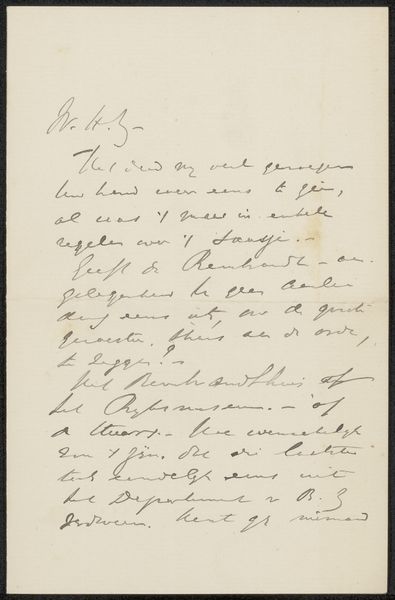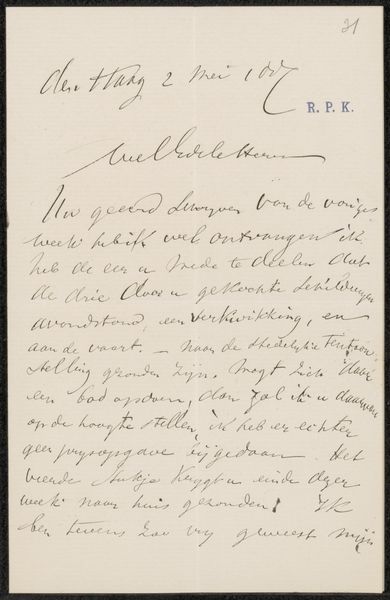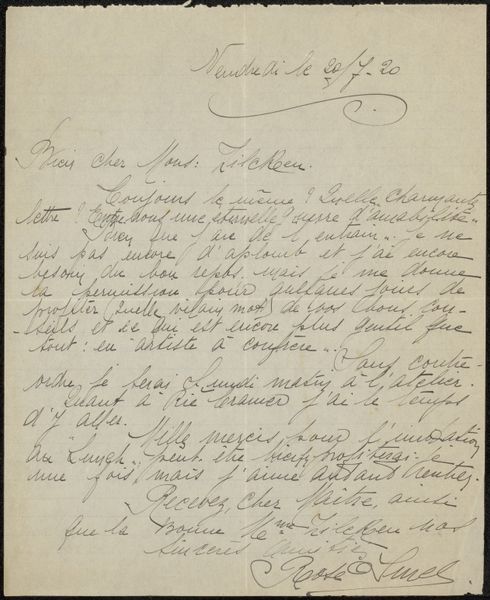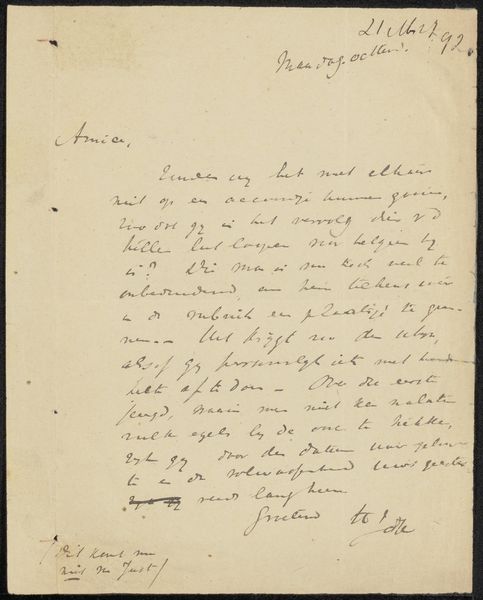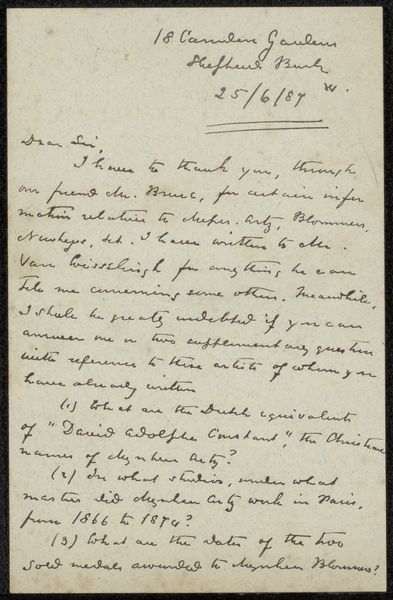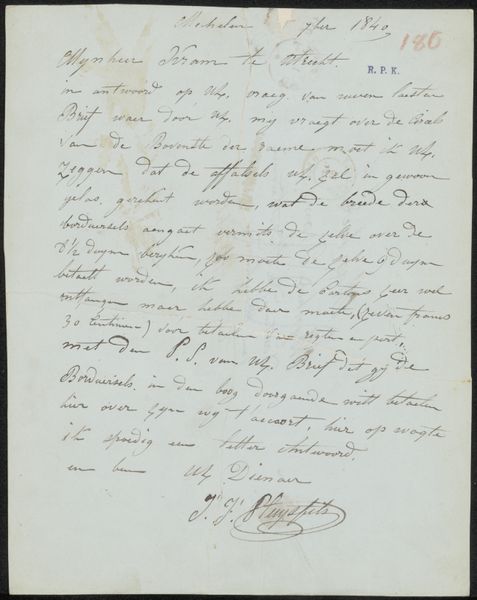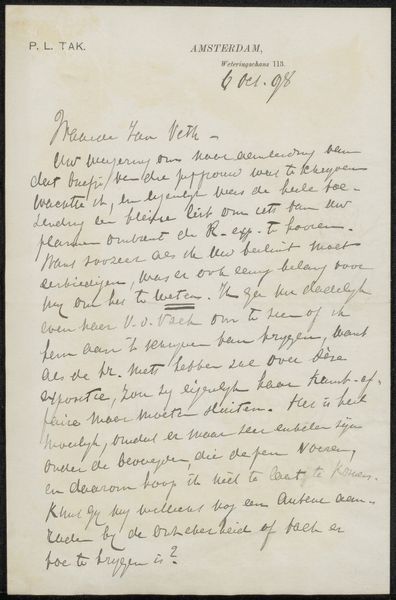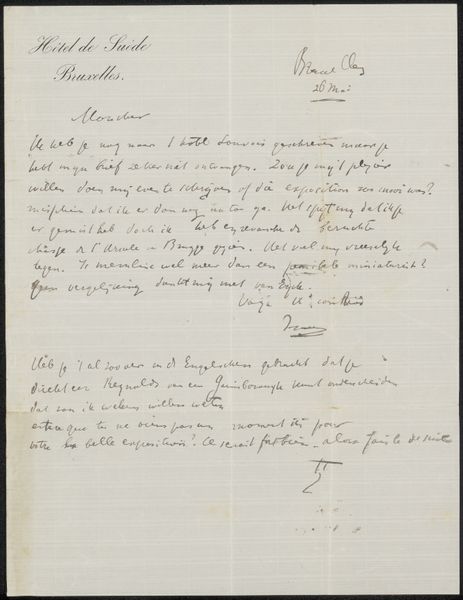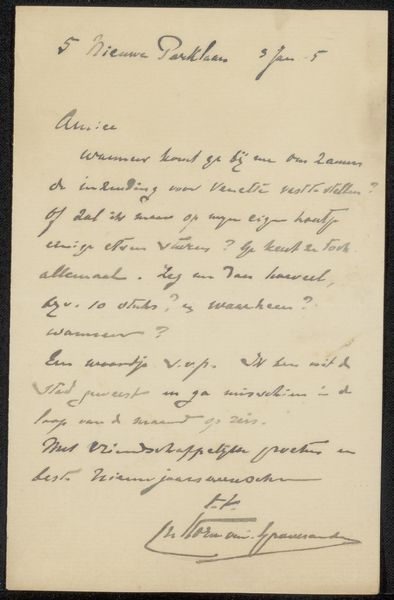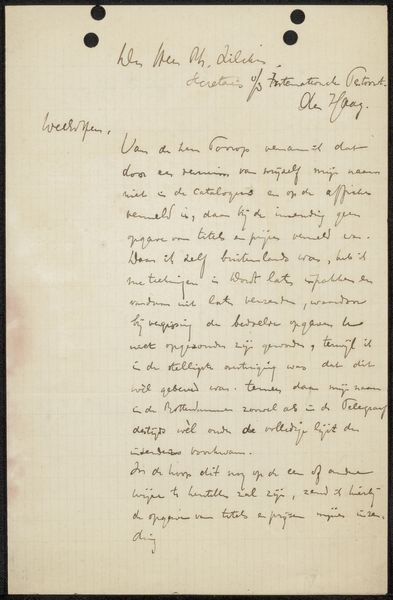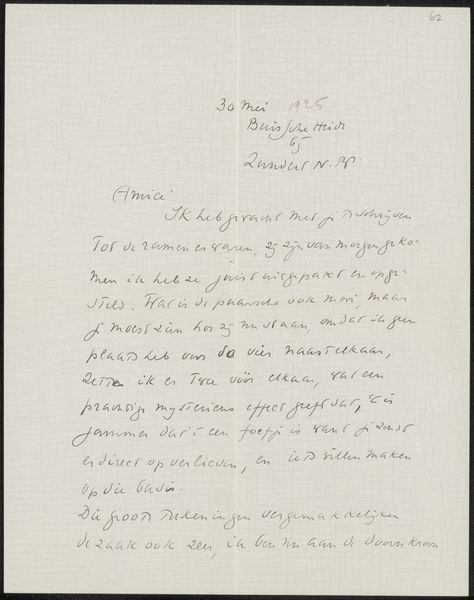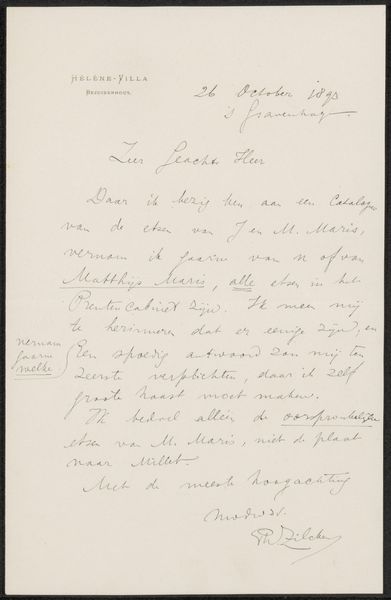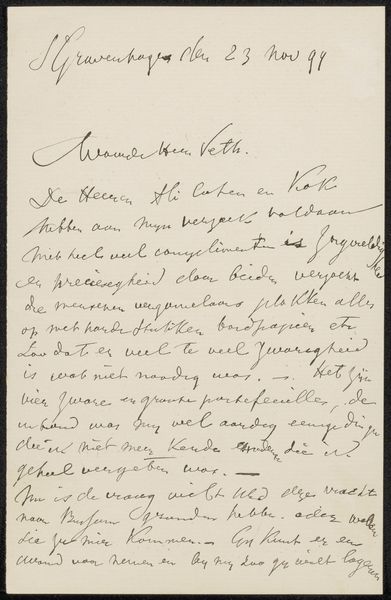
drawing, paper, pen
#
drawing
#
paper
#
pen work
#
pen
#
genre-painting
#
realism
Copyright: Rijks Museum: Open Domain
Curator: Jozef Israëls likely penned this "Brief aan Alberto Caramelli" around 1873, a quick drawing rendered in pen on paper. Its home is now the Rijksmuseum. What strikes you most at first glance? Editor: Immediately, I'm hit by a sense of intimacy, like I'm intruding on a private exchange. The penmanship has a frantic sort of elegance, but it's so compact. The handwriting is an aesthetic experience. It feels a bit secretive. Curator: It’s fascinating to consider the material conditions here. Pen and paper, common enough, but then there is the social context. What relationship allowed such direct communication? Why record a piece of correspondence? Editor: Maybe there was some significance the receiver felt in that specific moment of communication—like, oh, "I've finally broken through to this stubborn man", ha! The immediacy feels honest in its lack of fuss, especially considering it would be something now only collectors would find interesting, because that era is gone and forgotten. It seems that what might seem disposable can contain entire worlds! Curator: You are hitting on a significant aspect. In Realist style, Israels' dedication to humble, everyday subjects makes you think, where is value found, and who decides the price? What's "disposable" to one, as you noted, might offer profound insight for another. How often are seemingly important official pieces just paperweights a century later? Editor: Absolutely. The letter could concern an mundane detail in life, an everyday frustration of life back in the 1870's. Even a quick sketch on a scrap gains a certain emotional weight over time, don't you think? The labor of writing—pen scratching, ink drying—it all whispers stories. Curator: Precisely. The raw process of it, the making visible through labor and skill and even choice. That’s where a wealth of meaning lives. We might only wonder today how some future curator views one of *our* e-mails or text messages… Editor: That makes me think—imagine future beings parsing this conversation in an audio guide like it’s ancient poetry. History is layered, like palimpsest, that this work demonstrates for me. Curator: Well, a future indeed to ponder upon, or to be pondered over. This letter reveals its history, and our dialogue continues that story.
Comments
No comments
Be the first to comment and join the conversation on the ultimate creative platform.
